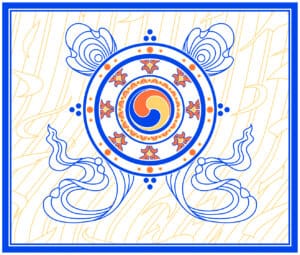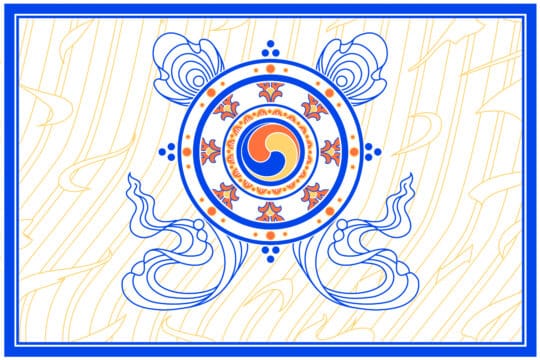What does it mean to live simply and genuinely? How can we incorporate Buddhist wisdom into our everyday lives? This course examines how to harness the practice of sitting meditation to cultivate genuineness and honesty, befriend oneself, and develop stable and natural discipline that can be brought into the world to reduce the harm mindlessly caused to others.
As the contemporary wellness marketplace swells with products and programs offering self-care and self-improvement, we might ask how we can create a nourishing and genuine lifestyle without relying on the usual shortcuts of consumption, distraction, and indulgence. The Buddhist tradition suggests that the way to improve our situation is by working with the mind to cultivate attention and honesty, and in doing so gradually come in contact with a sense of fundamental contentment. This course is based on talks Judy Lief gave in the context of a nine-day Profound Treasury Retreat, held in Crestone, Colorado in 2017. The focus is on foundational or Hinayana teachings found in the first volume of The Profound Treasury Trilogy, The Path of Individual Liberation.
Classes
1) The Basic Minimum as the Ground of Discipline

Tuesday, March 8th
Reading: Chapter 24, Profound Treasury Vol. 1: The Basic Minimum
Teachers: Judy Lief and Chris Willcox
This class provides a general introduction to the course, including its context within the Profound Treasury Retreats as well as the Vajradhatu Seminaries that inspired them and provided the source material for the Profound Treasury volumes.
We will provide an overview of the three-yana system of Tibetan Buddhism, and focus on the Hinayana, which serves as the basis for the course. Central to the Hinayana is the practice of sitting meditation. We will review the basic meditation instruction provided by Chögyam Trungpa Rinpoche and his particular emphasis on ordinariness, genuineness, and honesty.
Key Topics: 3 yanas, the hinayana, nontheism, spiritual materialism, importance of sitting practice, shamatha meditation, total involvementS
2) Straightforward Discipline
Tuesday, March 15th
Reading: Chapter 16, Profound Treasury Vol. 1: Loneliness and the Joy of Discipline
Teachers: Tavita Martinez and Chris Willcox
In this class we examine loneliness and aloneness as fundamental aspects of the human experience. This inescapable sense of being “on our own” frames the working basis of the Buddhist path: our minds. Discipline, in this context, is understood as the way in which we work with our minds. Through the application of discipline, the neurotic heat of mind is gradually cooled, and a sense of richness and appreciation of our lives emerges.
Key Topics: Taming the mind – dülwa – and conscientiousness – pagyö; decorum; aloneness and loneliness; Nontheism; two aspects of shila: taming neurosis and cultivating virtue
3) Obstacles to a Disciplined Life
Tuesday, March 22nd
Reading: Chapter 17, Profound Treasury Vol. 1: Taming the Neurotic Mind
Teachers: Damita Brown and Chris Willcox
In this class we examine the four mental obstacles we encounter on the path: stupidity, mindlessness, emotional upheavals, and lack of faith. Through the practice of meditation, we befriend, rather than eliminate these obstacles, and in doing so tame the neurotic mind.
Key Topics: encountering obstacles, laziness, awareness, kleshas, confidence, shila, samadhi, and prajna
4) Natural Discipline
Tuesday, March 29th
Reading Chapter 18, Profound Treasury Vol. 1: Cutting the Root of Samsara, 19. Continually Gnawing Rock
Teachers: Zoe Morris and Chris Willcox
This class will examine natural discipline and its three gates: body, speech, and mind. In particular, we will discuss how subtle unconscious tendencies and fixations – karmic seeds in the alayavijnana – can snowball into the dramatic pains and pleasures of samsara, and how this process can be interrupted through mindfulness practice.
Key topics: natural discipline, taming and subjugating, the three gates of discipline: body, speech, and mind, cutting karma through mindfulness practice, alaya consciousness, the gap, renunciation, two-fold egolessness
5) Marks of a Dharmic Person
Tuesday, April 5th
Reading: Chapter 20, Profound Treasury Vol. 1: Becoming a Dharmic Person
Teachers: Harry Einhorn and Chris Willcox
Through regular meditation practice, the sharp edges of our personalities are gradually and naturally softened. This class will explore the seven characteristics of a dharmic person and how these naturally arise through regular meditation practice.
Key topics: taming, genuineness, cool boredom, the seven characteristics of a dharmic person: passionless, contentment, fewer activities, good conduct, awareness of the teacher, propagating prajna, attitude of goodness
6) Daily Recommitment to the Practice of Not Harming
Tuesday, April 12th
Reading: Chapter 21, Profound Treasury Vol. 1: Refraining from Harm
Teachers: Judy Lief and Chris Willcox
One of Buddhism’s many skillful means is the use of vows. This class will discuss in particular the pratimoksha vows, taken in the form of five precepts, and the refuge vow with which it is often associated. These five precepts form the “nitty gritty” of post-meditation practice and focus on reducing harm and paying heed to one’s actions. They can serve as useful reference points for our conduct regardless of whether we have taken vows.
Key topics: pratimoksha and refuge vows, five precepts, failing and starting over, remorse vs. guilt, fresh start and recommitment
